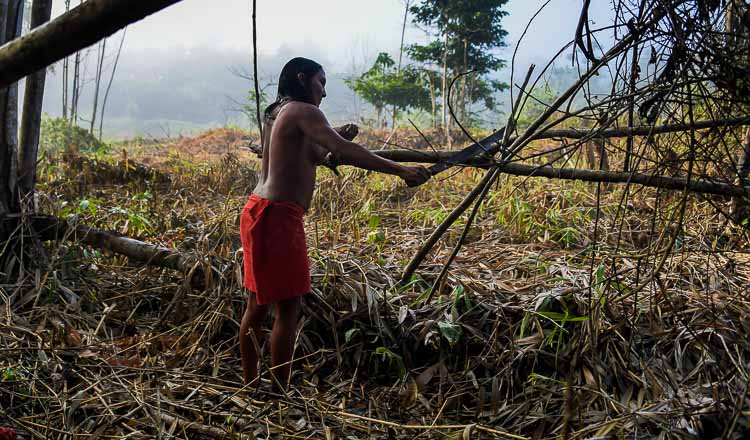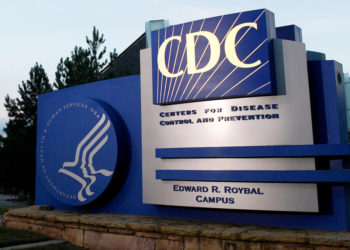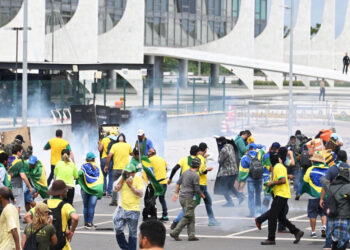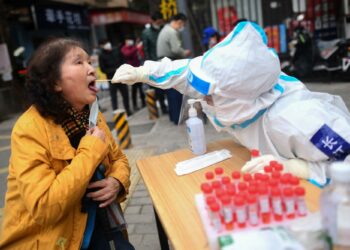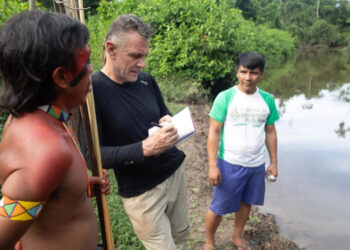Indigenous leaders from across South America on Monday issued a desperate plea for protection against the COVID-19 pandemic, warning that the virus poses an “existential threat” to their communities.
With billions confined to their homes as the world tries to slow its unprecedented spread, tribes in the Amazon and Chaco regions are urging governments to ensure their territories are protected against outsiders possibly carrying the coronavirus.
“Indigenous people living in voluntary isolation are especially vulnerable to infectious disease as they don’t have any immunity at all against most diseases,” said Claudette Labonte, from the Congress of Indigenous Organizations of the Amazon Basin (COICA).
“We call on governments to intensify surveillance and protection of indigenous territories, many of which are invaded by miners, drug traffickers, loggers, land-grabbers and tourists,” Labonte, a member of the Kamuyeneh community in French Guiana, told AFP.
She said that illegal miners were seeking to take advantage of the pandemic to expand activity into French Guiana. Community leaders have decided to block the Marroni River for protection, she added.
Indigenous communities are crucial guardians of biodiversity. The Intergovernmental Panel on Climate Change recognizes them as a key player in the fight against global warming, and they are thought to protect forest that contains more than 200 billion tonnes of carbon.
Deforestation on indigenous lands is less than half the rate on other lands, but the communities are under increased threat from illegal activity and government-mandated agribusiness projects.
A group of 20 indigenous organizations from seven South American countries issued a call to governments to ensure that their protective “geographical isolation” was respected.
COICA said that if boundaries were not respected then COVID-19 posed an “existential threat” to indigenous communities.
‘One Infection can Devastate’
While mortality rates from confirmed COVID-19 appear to vary between nations, healthcare system bandwidth plays a part: many of the deaths seen in Italy and Spain, for example, are down to hospitals being overwhelmed.
Indigenous peoples have lived with the threat of infectious diseases for centuries -it is estimated that their population in South America decreased by a quarter between 1492-1650 due to viruses and bacteria carried over by colonizers.
Michael McGarrell, from the Patamona Nation of Guyana and human rights coordinator for COICA, told AFP that indigenous communities were essentially defenseless against new diseases.
“We run the risk of being impacted, the reason being that many of our communities don’t have the required facilities to deal with any outbreak,” he said.
“Because they are small and have a communal way of life, coronavirus is a danger to them. We’re calling on governments to ensure that systems are put in place to cater for our needs.”
There are currently a number of ways the virus might reach isolated communities, not least from a group of evangelical Christians currently seeking to convert Amazonian tribes, McGarrell said.
Local authorities in Brazil said Friday that 10 members of the Tikuna ethnic group were being quarantined after coming into contact with a health worker who later tested positive for COVID-19.
“Just one person entering who is infected can have a devastating impact on our communities,” said McGarrell.
“This should never happen. We know from history that when the colonists came our people were decimated as a result of illness such as flu and chickenpox.”
McGarrell said that a COVID-19 epidemic among tribes would jeopardize the preservation of the forests they inhabit and risked losing medical expertise passed down through the generations.
“Indigenous peoples play a great role in maintaining biodiversity and we have certain knowledge that can help the world,” he said.
“If coronavirus gets a hold of our population who knows what will happen.”


